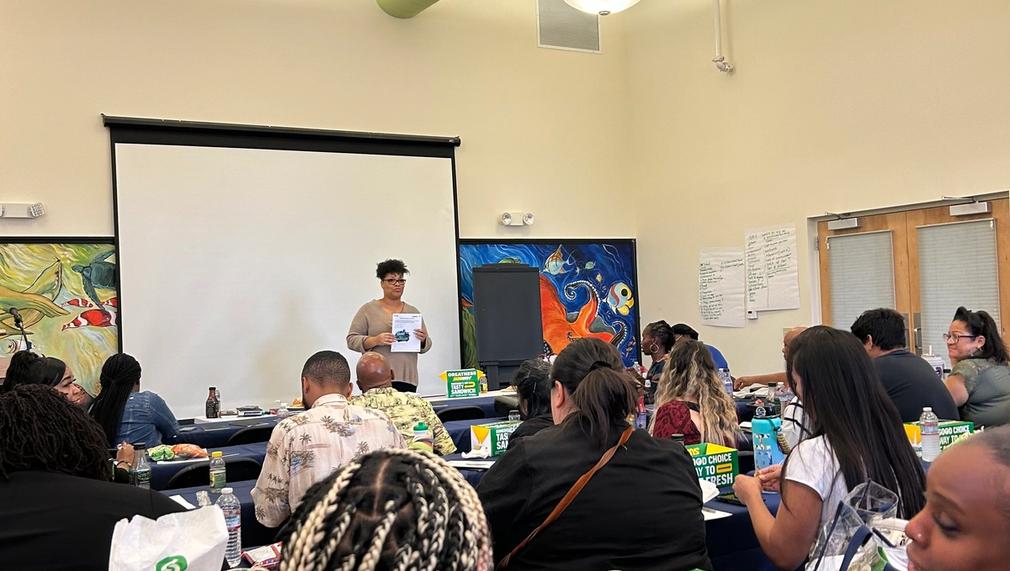Community Mediation as a Solution to community violence and healing
Our program promotes mediation over legal or governmental interventions, advocating for neutral, creative problem-solving to resolve conflicts. Empowering public and private entities and residents to adopt mediation fosters constructive dialogue and long-term resolutions, enhancing relationships and community cohesion. This initiative supports justice, equity, and social harmony by equipping individuals with essential conflict-resolution skills, ultimately enriching lives and creating a more satisfying and inclusive society.

What is the primary issue area that your application will impact?
Community safety
In what stage of innovation is this project, program, or initiative?
Applying a proven solution to a new issue or sector (using an existing model, tool, resource, strategy, etc. for a new purpose)
What is your understanding of the issue that you are seeking to address?
People are conditioned to seek legal, adversarial or governmental help for everyday conflicts instead of empowering or self-help resources such as mediation. Our project will provide services to help both public and private entities and residents LEARN about and use neutral, creative problem solving processes to resolve differences, claims, and disputes in EDUCATION and other areas that will help them LIVE more satisfying, happier lives.
Describe the project, program, or initiative this grant will support to address the issue.
We aim to offer mediation and conflict resolution training specifically tailored for BIPOC (Black, Indigenous, and People of Color) and low-income community members in the Antelope Valley, California. This initiative is crucial as the region has witnessed a rise in violent conflicts among individuals aged 14 to 30 years. Our program will provide free training and actively engage in mediation services, offering alternative interventions to mitigate violence and promote racial and social justice healing. The Antelope Valley, located in northern Los Angeles County, comprises diverse demographic groups. According to recent data, the population includes significant representation from Hispanic or Latino (about 50%), White (non-Hispanic) (about 40%), Black or African American (around 10%), and smaller percentages of Asian and other ethnicities. The area also faces socio-economic challenges, with a notable portion of residents falling into low-income brackets, which underscores the importance of accessible conflict resolution services.
Describe how Los Angeles County will be different if your work is successful.
Mediation is often perceived as a luxury service, excluding many with lower socioeconomic status from effective conflict resolution. Our initiative breaks this barrier by offering free mediation, making it accessible in homes, schools, and communities. Free mediation promotes healthier conflict resolution over adversarial methods, fostering mutual understanding and respect. It strengthens relationships and community cohesion. Our initiative ensures all parties, regardless of background, have equal access to support, promoting fairness and empowerment in conflict resolution. By normalizing mediation, we shift towards peaceful, collaborative practices. We aim to empower individuals to resolve conflicts independently, benefiting participants and promoting community well-being. We strive to foster a justice, equity, and peace culture, making mediation a cornerstone of a harmonious society.
What evidence do you have that this project, program, or initiative is or will be successful, and how will you define and measure success?
While our services have a long-standing presence, our current focus is on expanding our capacity to reach more community members who face barriers such as lengthy court battles and the financial strain of legal fees resulting from outbursts or violent actions. This expansion is crucial as it enables us to offer timely and accessible support to individuals and groups who may otherwise resort to adversarial methods for conflict resolution. By growing our program, we aim to meet the increasing demand for effective mediation services, thereby reducing conflict escalation, promoting peaceful resolutions, and ultimately fostering a safer and more harmonious community environment.
Describe the role of collaborating organizations on this project.
EmpowerThem Collective will support 3 stakeholder engagement sessions within the community.
Approximately how many people will be impacted by this project, program, or initiative?
Direct Impact: 50.0
Indirect Impact: 300.0